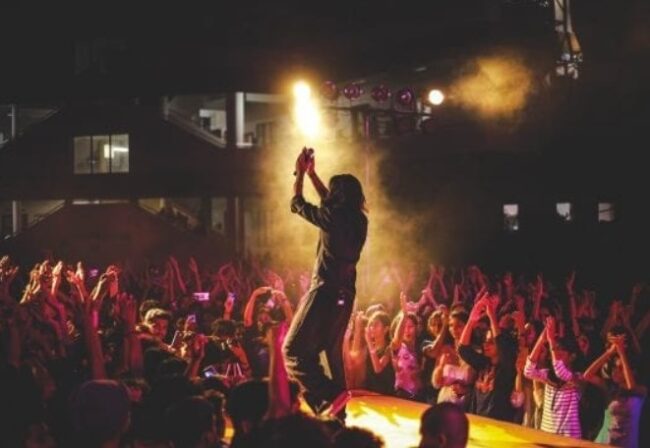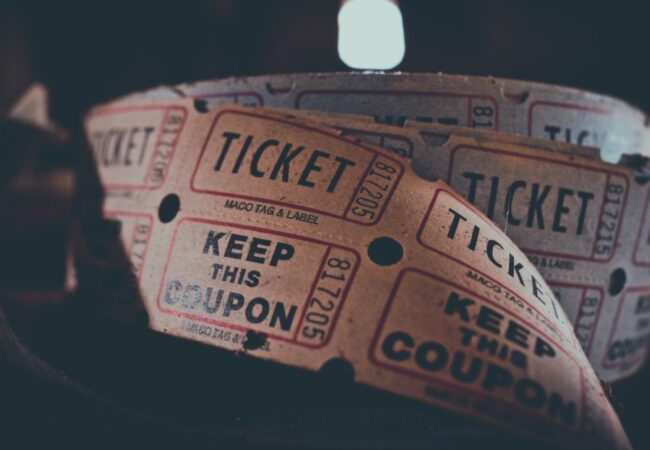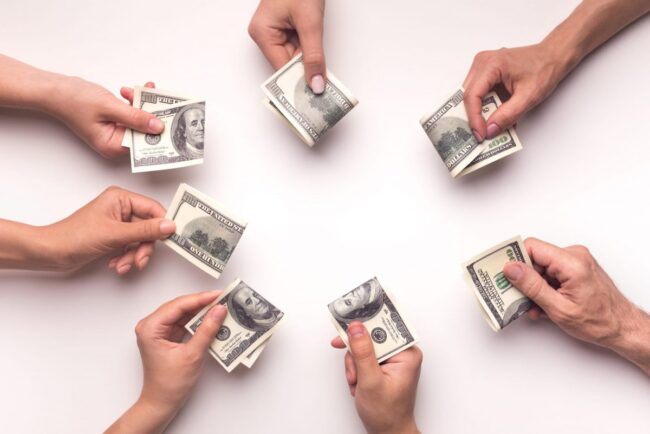It’s 2024, and the gig industry has been severely hit by COVID-19 and subsequent lockdowns. Though some promoters and musicians found extravagant ways out, none of these appeared good for the mass market. With platforms like Show4me, though, an artist or a band can find support with concert crowdfunding.
What Is Concert Crowdfunding?

Crowdfunding, in general, is the way to raise money for your project by attracting numerous donators (backers) who support it and later get rewarded for that. Inventors can put their devices on crowdfunding, with principal blueprints and maybe working prototypes to make sure the thing works. Musicians can thus fund their upcoming albums, videos, and – as in our situation – concerts.
The method is quite similar to crowdfunding any other project. You need to make a convincing description of what you’re about to organize, where and how (these details may alter after the pre-campaign public discussion). The very possibility of their alteration is among other traces that put crowdfunded concerts apart from traditionally funded.
How to Plan Concert Crowdfunding Campaigns
The main rule many artists may forget about is: be a realist! You can rate the popularity of your band, at least approximately. So how many fans will come in the town you’re planning to visit? Cut the number in two: some people always have a reason to miss it.
Then find a venue. Calculate your expenses which may include:
- Equipment rent;
- Stage decoration and costumes;
- Transportation and accommodation;
- The staff you hire (depends on the concert);
- Promotion and ads.
Not all of this might apply, as well as alternative expenses may arise – you name it. As you calculate the cost and the desired profit (not too modest, not too high – again, be a realist!), you can come up with the goal you need to raise during the campaign. Set realistic deadlines as well.
Crowdfunding vs. Ticket Presale

If you have been in the concert business for a while, you may find it similar to ticket presale. In some way, it is: people pay a certain amount of money now, so they can attend some event in the future. To advertise the concert right, you provide the detailed, immersive impression of what it will be like (and probably add more as the campaign unfolds). The event features the same artists and bands as the advertisement (if not for force majeure)… and that’s where similarities end.
As for differences from the promoter’s perspective, there are more of them:
· If you plan a gig and presell tickets, you are obliged to make it happen, even if the sales are disappointing. It will result in financial or reputational losses, or both. With crowdfunding, you have no obligations when underfunded: you just make refunds to backers and start reflexing on where you went wrong. No need to rent equipment, venue, or staff until you reach the goal and confirm the concert.
· Crowdfunding lets promoters bypass ticket selling platforms that are otherwise the most efficient (but quite expensive) way to presell tickets. Instead, you work through crowdfunding platforms. They also collect their fees, but these are noticeably smaller.
· Backers have their say in shaping the concert, for example, in selecting the venue or shaping the playlist. The promoter needs to consider this constantly.
· In preparing a concert, you may have to raise funds from advertisers or sponsors who also have their say in both official and unofficial ways. With crowdfunding, it’s all between you and your backers.
Especially for Artists
While crowdfunding has lots of pros, most platforms make it questionable to implement some of the features that make concert crowdfunding efficient. How about, for example, the following:
- Ticket presale before the date is announced. It may be inconvenient for some backers, but if the majority agrees on the date, the rest can get refunds or other compensation.
- Combination of concert crowdfunding, music streaming, and merchandise sales. For a true fan, this would be a great option, making it easier for artists as well.
- Social media elements, so backers don’t have to jump from a crowdfunding platform to Facebook and back to communicate with the band.
- Making shows for various audiences. For example, you need to consider age restrictions, so your show for the younger audience will contain no explicit content and happen in the evening, while the adult version at the same venue happens at night.
- Automatic ticket generator, so seats are distributed according to the order of buying or to the users’ choice. Great if it supports differentiated tickets (VIP, generic seats, fan zone/dancefloor), so the ticket is automatically generated in its category. If the tickets have a QR code (how else in the XXI century?), there should be an app to check them at the entrance.
These details are specific to the music industry, especially for concerts. A generic crowdfunding platform may lack them, so it makes sense for a promoter (no matter if it’s the artist/band themselves or a hired manager) to search for a qualifying platform.
It may be quite a task to get your users to visit its site or install its app. The way to achieve it is a massive campaign on established social media, like Facebook, Instagram, TikTok, or others.
Crowdfund Like an Artist

In fact, you can combine traditional presale and crowdfunding methods. For example, you can start crowdfunding, offering the backers VIP tickets, merchandise, and other benefits. After the goal is reached, you start selling regular tickets for fixed prices. If you try to combine crowdfunding with traditional fundraising and find some major sponsors, they need to be highlighted in advertisements and during the show itself.
Crowdfunding can also concern other aspects of the event. For example, selling merchandise is a traditional source of extra revenue at gigs. Its production can be crowdfunded too. In this case, the backers can have their items (discs, T-shirts, baseball caps, USB drives, and stuff) cheaper than spontaneous buyers at the event itself.
The same way, you can promote your digital products – not new full-fledged releases, but B-sides, remixes, demos, sessions, etc. Backers should feel the bond between themselves and the artist. And the better you strengthen these bonds at the concert, the greater is the chance to succeed for your next campaign.
